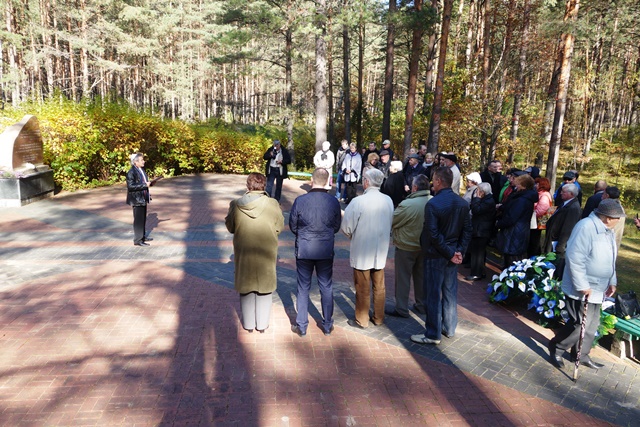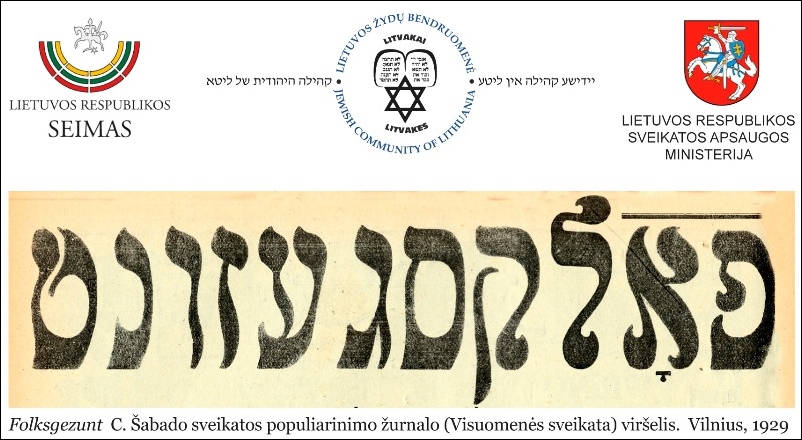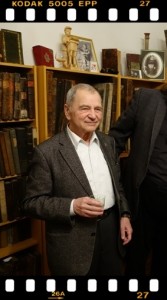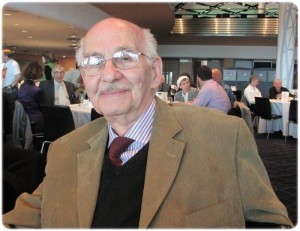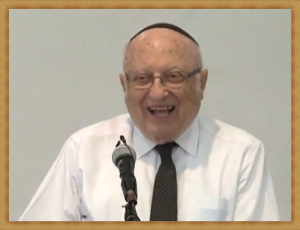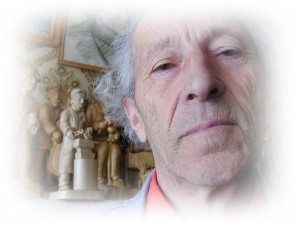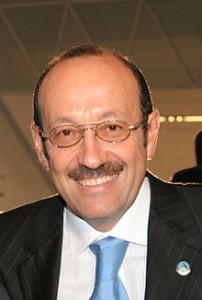by Shloyme Gilinsky
This extract from a Litvak memoir by Shloyme Gilinsky who was born in 1888 in Lingmyán (now Linkmenys, Lithuania), and died in 1961 in the US, has been translated from the original Yiddish by the author’s son, Victor Gilinsky (Los Angeles, California).
Victor Gilinsky writes:
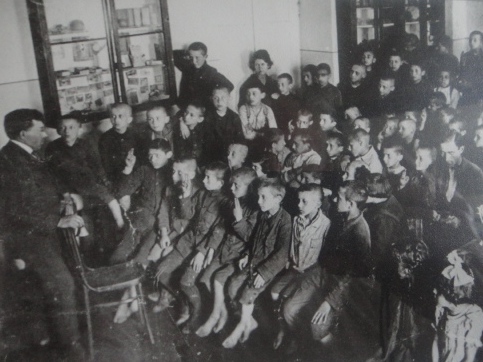
The teacher, Shloyme Gilinsky, is at the left.
“My father was born in 1988 in Lingmyan and died in 1961 in Lexington NY, on a summer holiday. He lived n NYC. I have attached my favorite picture of him—teaching a class, probably around the time of World War I. Note the kids have very short hair—just growing back after having their heads shaved to deal with lice, and they don’t have shoes. This was their only way to the larger world, like in an earlier generation the Gaon’s Kloyz, and the ferment around it, was for him.
“I’m in Santa Monica. I had a small memorial plaque put on a bench facing the ocean near the Santa Monica pier. I was allowed three lines of 24 characters each so I had to figure out how to sum him up with that limitation. I had them inscribe:
Shloyme Gilinsky d 1961
Started Yiddish schools
in Poland, mourned them
“I found the material in handwritten notes in my mother’s files that I only recently went through. She sent most of his stuff to Yivo but when I got in touch with them they could hardly find anything. It seems to have disappeared. Nor did they seem to have any interest in it. I have some other material but the handwriting is just too hard to read.”
◊
I write this in nineteen hundred sixty in New York, a long way from my beginnings before the turn of the century in a Lithuanian shtetl. We Jews called it Duksht. The Lithuanians in the surrounding countryside had their own name, as did the Poles, and the ruling Russians. But we lived apart from the rest, in our own world, a situation that was about to change. I want to tell you how Henke’s legend awakened me and the other young Jewish boys in town to the broader world, and how it ultimately set the course of my life.
Continue reading

